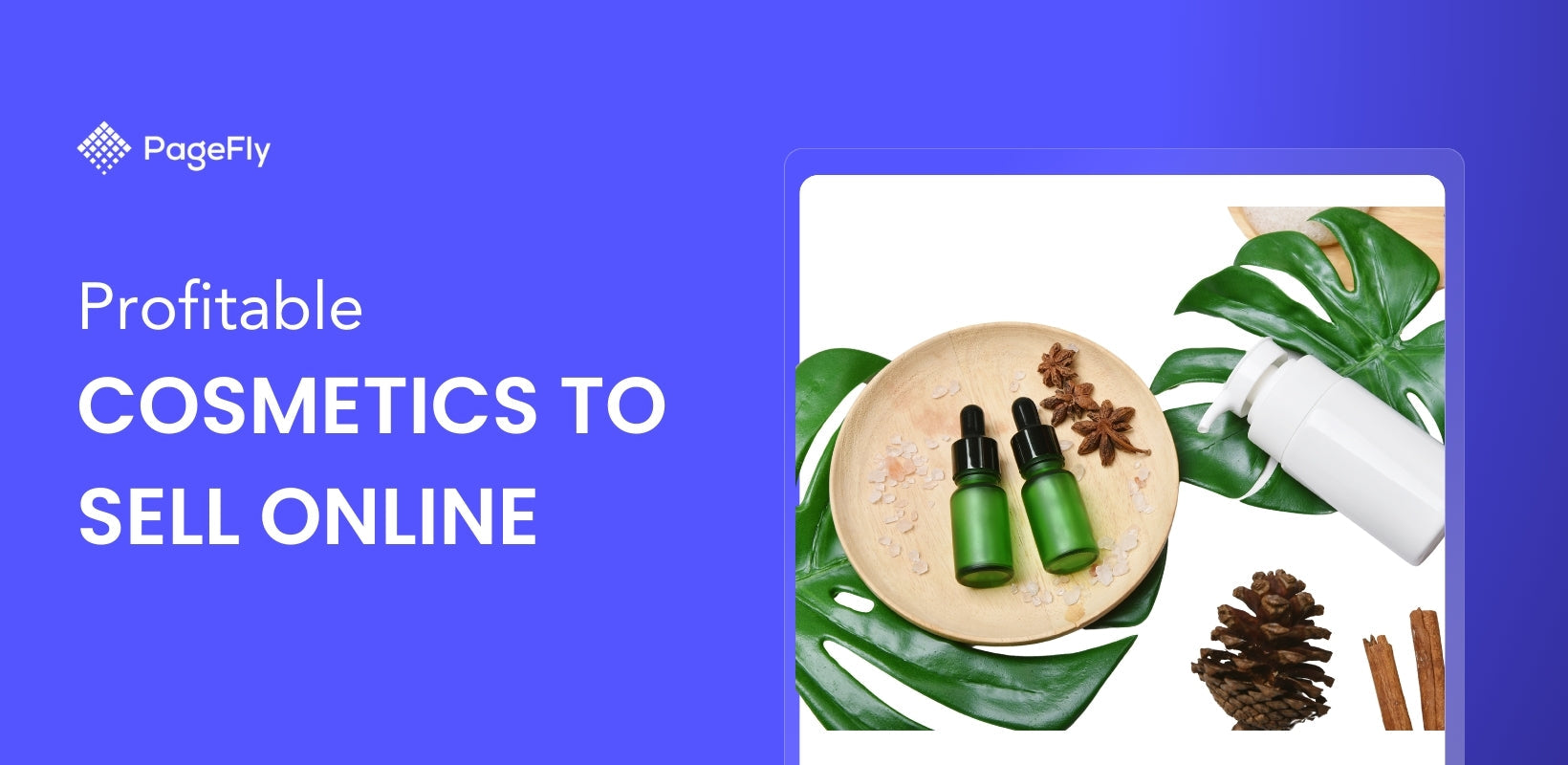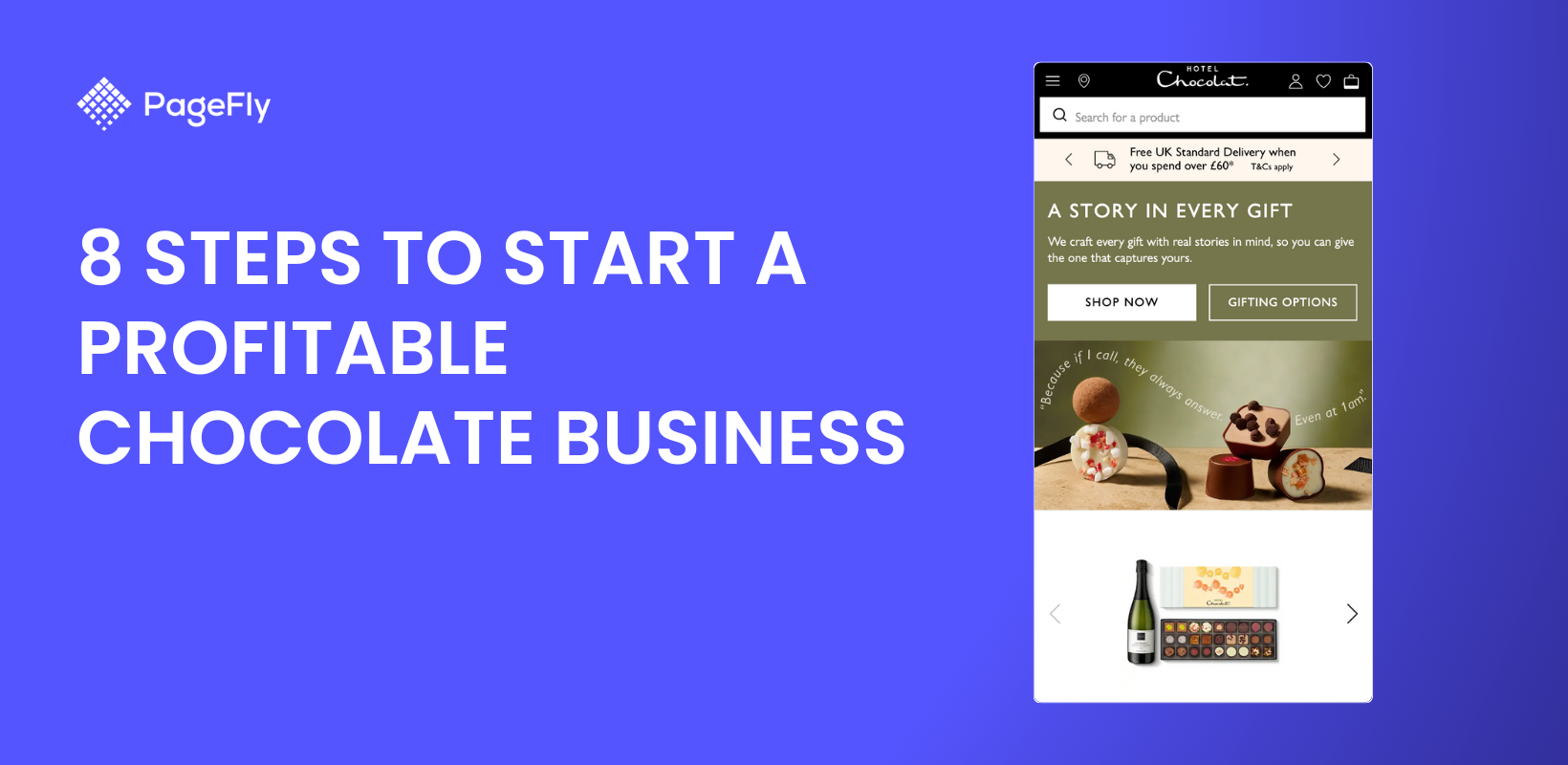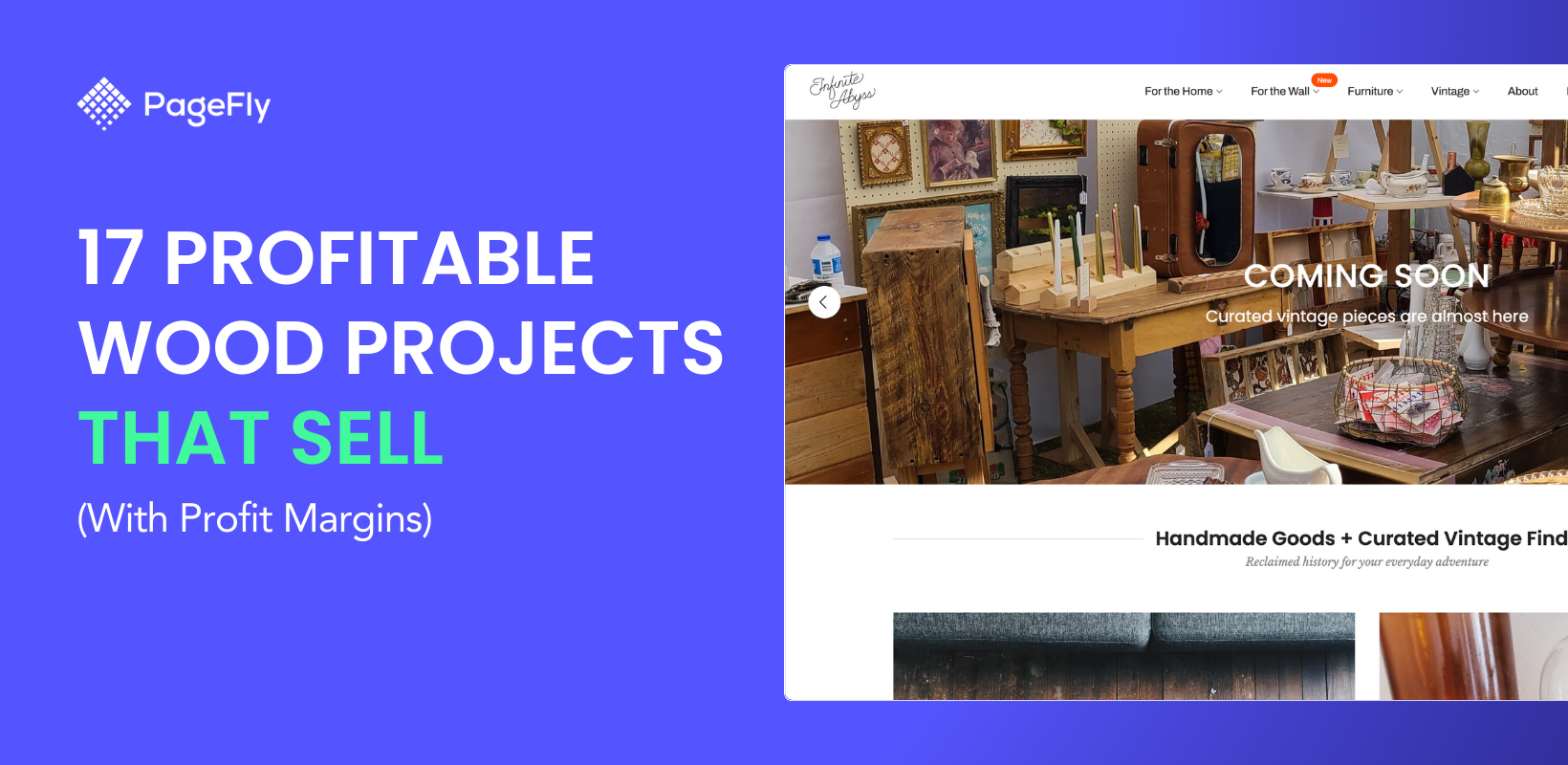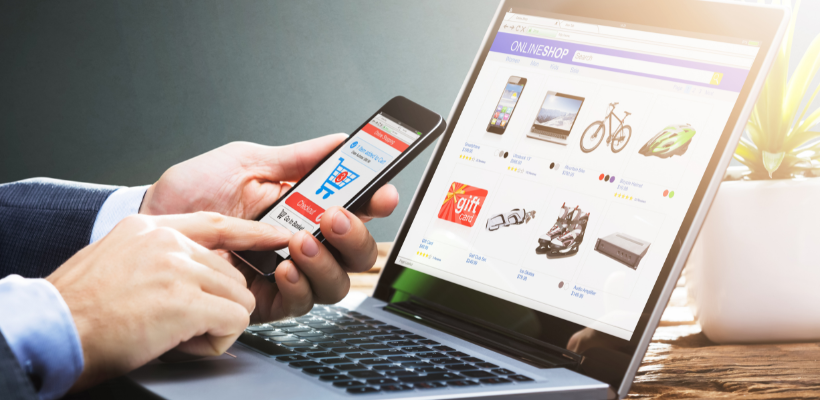The concept of sustainability or green businesses isn't just a fad or a buzzword anymore. Businesses worldwide are adopting a journey of sustainability for a promising future.
From 13.76 to an anticipated 62 billion dollars by 2030 - this is what the green tech market is climbing into, promising a sustainable future for green business in the coming years. But where do we begin? Building a sustainable business starts with the right green business ideas.
More and more consumers are demanding eco-friendly options, and businesses are realizing the potential of embracing green practices. As a green business owner, you can make money while making a positive impact on the planet.
But what green businesses can you start? This blog will give you the answer. Learn about the nine best green business ideas you can explore to venture into 2024.
What is a Green Business?
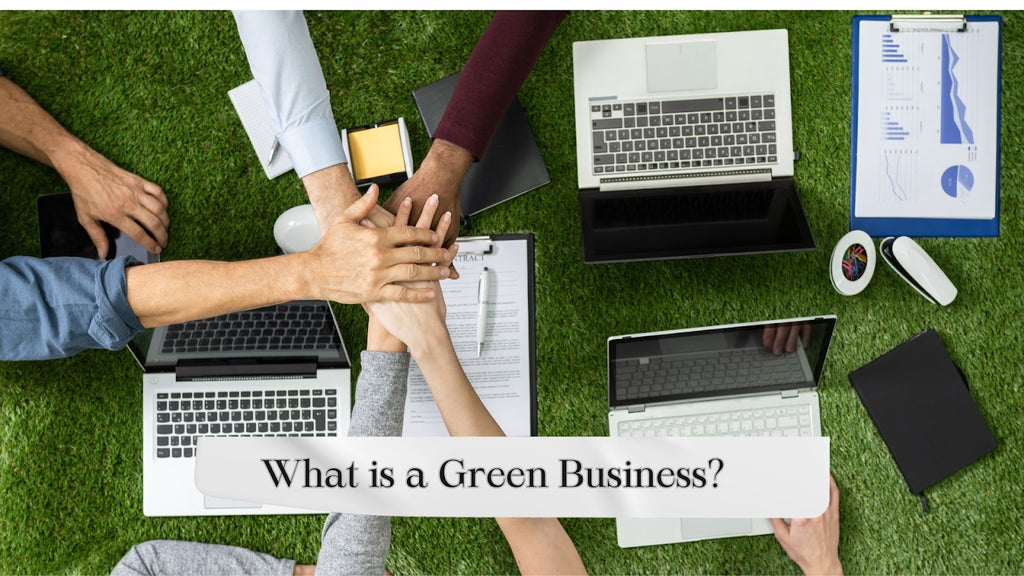
Source: Canva
A green business is one that puts environmental friendliness and social responsibility above all by creating and offering products and services that have little to no negative impact on the environment. We are talking about eco-friendly materials and practices that contribute to the promotion of sustainability.
Some of the core principles of sustainability for green businesses are:
- Environmental Leadership: As a green business owner, one of the core principles of running a sustainable business includes taking responsibility for minimizing the ecological footprint through sustainable practices.
- Social Responsibility: You need to contribute actively and positively to local communities and society at large.
- Economic Viability: Achieving financial success must be your business's #1 goal. But this should happen while maintaining a commitment to environmental and social goals.
A great online green business putting sustainability forward is Good & Fugly. This brand focuses on rescuing the not-so-good-looking fruits and vegetables that are rejected by supermarkets and other grocery stores.
Farmers lose income, and a significant amount of water and energy is wasted on produce that never reaches consumers. These boxes help revive and utilize that produce. Good & Fugly collect these fresh and healthy products and creates produce boxes at affordable rates, which people can buy from their online store.
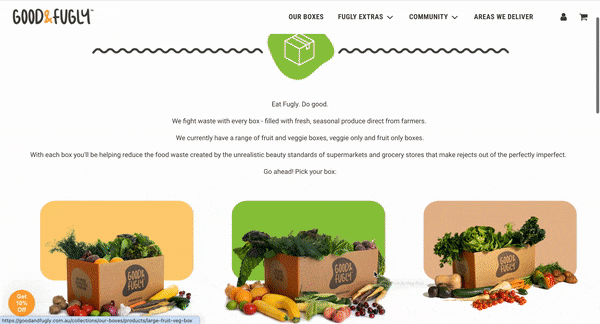
Source: Good & Fugly
Meeting your green business goals and building an exciting and vibrant brand isn't as hard as you think. So many wonderful brands have done it, and so can you. We absolutely loved how Meow Meow Tweet is a Shopify store that sells natural vegan skin care.
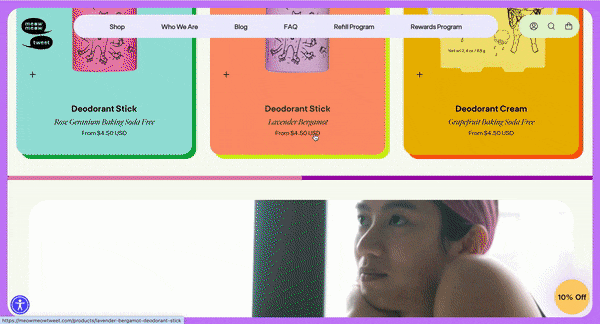
Source: Meow Meow Tweet
Not only is the product environmentally friendly, but this business takes up sustainability right from its packaging. Customers who purchase from Meow Meow Tweet can discard their empty skincare bottles as they are made of paper boxes, tubes, and glass jars, which are easy to recycle. It’s all mentioned on the product page for your convenience!
How to Start a Green Business?
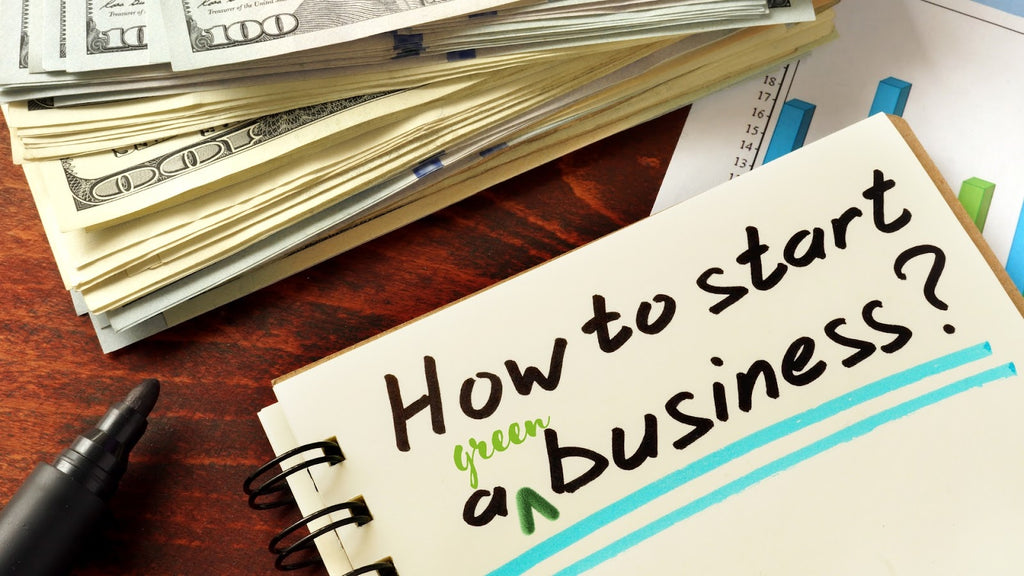
Source: Canva
If you are excited about starting your own green business and are wondering how to begin your journey to selling eco-friendly products and services, then here are the three steps you need to follow:
Identifying Your Green Niche
Identify an area of environmental concern that aligns with your expertise or passion. This is important to starting and sustaining your business for a long time. For this, analyze the available green business markets and their demands. Determine what your business can offer as a solution to the identified concern. For example, if you are looking at sustainable home solutions, you can start businesses in solar power or water conservation systems for home residents. Similarly, you can look into eco-friendly clothing niche or even sustainable event planning.
Developing Your Green Business Plan
Next, develop a solid business plan. Outline what your business's ultimate goals, mission, and values are. This will help you identify your target audience and outline the specific eco-friendly practices to adopt. This step is also crucial in determining your financial investments and capital requirements.
Launching and Growing Your Green Business
The final step to starting and launching your business involves connecting with like-minded individuals, organizations, and suppliers. You must also ensure your business complies with necessary environmental regulations. Once you have launched your business, you need to proactively engage with the community through events, partnerships, and educational initiatives.
Don't forget to promote your business in a sustainable manner, too. You can consider collaborating with local eco-friendly organizations or suppliers to amplify your green impact. Use social media and other digital platforms to share your green initiatives more instead of brochures, flyers or traditional marketing methods.
9 Going Green Ideas for Businesses in 2024
Vertical Farming in Urban Spaces

Source: Dassault Systemes
If you are looking for something for the long run, then this one is for you. If you live in an urban area and are wondering if any type of sustainable farming is possible, then yes, vertical farming is. AeroFarms is an excellent example of this, and in this green business, crops are planted and cultivated in vertical layers or towers within feasible urban environments.

Source: AeroFarms
Key features of this type of farming include:
- Optimized space usage.
- Year-round cultivation is possible.
- Improved control over water, nutrients, and lighting.
Pros:
- It is ideal for even the most densely populated urban areas.
- They have minimal water consumption compared to conventional farming.
- Crops can be grown closer to consumers, reducing the environmental impact of transportation.
Cons:
- The initial setup cost can be high.
- Artificial lighting and climate control systems may be needed.
- Need expertise in agronomy, technology, and sustainable practices.
Investment Estimate:
Setting up a vertical farm in an urban space can range from $50,000 to several thousand dollars, depending on factors like scale, technology, and location.
Read more: The Ultimate Guide For Top Eco-friendly Dropshippers
Biodegradable Packaging Solutions
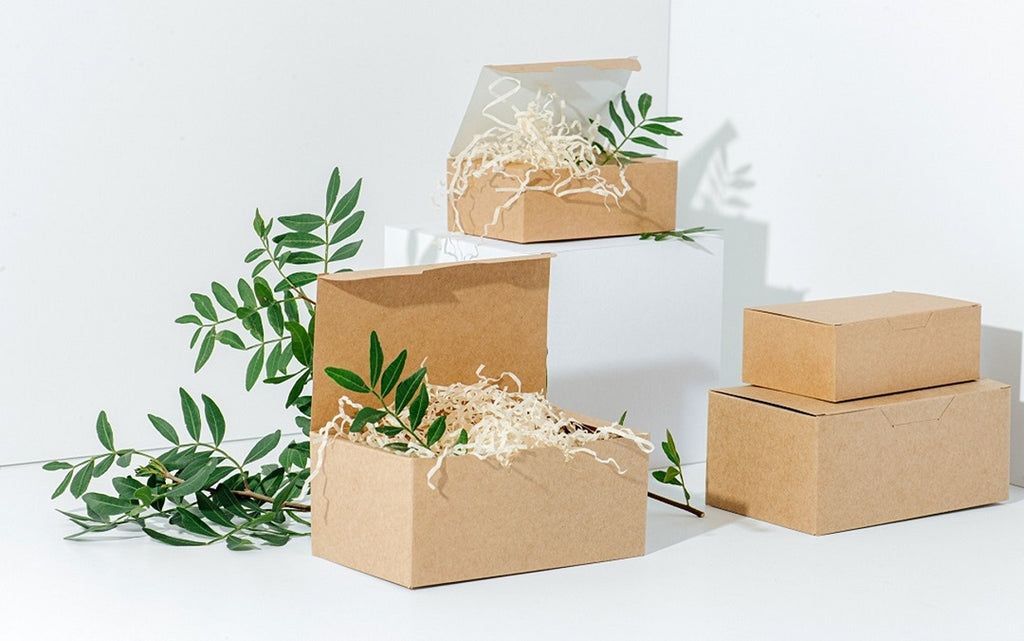
Source: The Packaging Company
If you are a nature fan, we are sure you would have used more than one biodegradable product. Biodegradable packaging solutions are simply packaging materials that can naturally break down and decompose over time, usually through the action of microorganisms, without leaving harmful residues. These are eco-friendly and environmentally-conscious alternatives to other packaging materials (especially plastic).
Some of its features:
- They break down into natural elements easily.
- They are derived from renewable resources.
- They reduce the environmental burden associated with traditional, non-biodegradable packaging.
Pros:
- Helps reduce the overall harm or negative impact on ecosystems and wildlife.
- A better alternative to numerous traditional packaging methods.
- This type of green business appeals to environmentally conscious consumers who prioritize sustainability.
Cons:
- They might have biodegradable materials that may have a shorter shelf life.
- Theycan be more expensive to produce than traditional options, affecting overall product costs.
Investment Estimate:
Investing in biodegradable packaging solutions can range from a few thousand dollars for small-scale businesses to more substantial investments for larger enterprises.
Upcycled Furniture & Home Goods
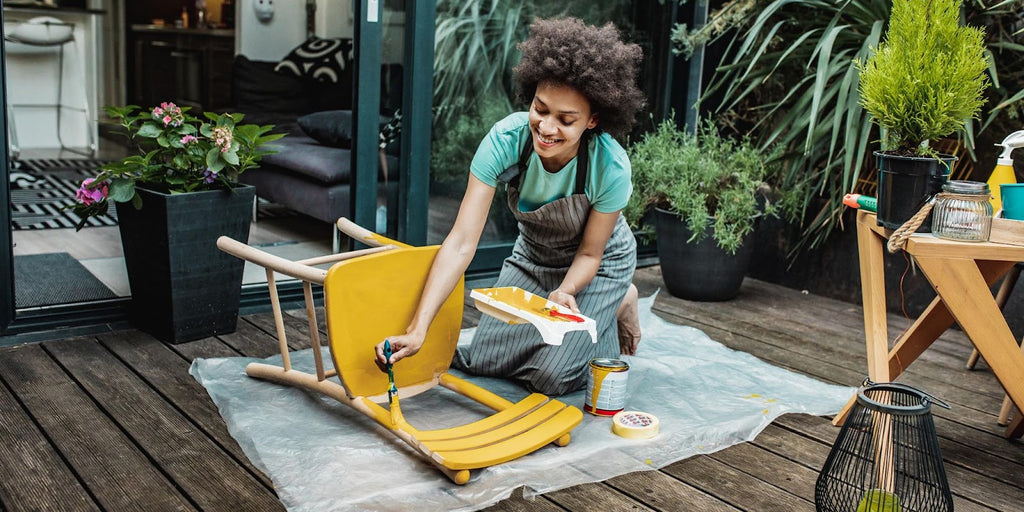
Source: The Today Show
The demand for upcycled furniture and home goods is over the roof these days. This is because more people are interested in buying unique pieces of furniture that are improved both in appearance and function. This includes being creative with old furniture, fixing them up, and painting them to be resold at a better price.
Features include:
- Upcycled items use existing materials.
- The process focuses on creative redesign and craftsmanship.
- It reduces the amount of waste sent to landfills.
Pros:
- Minimal demand for new raw materials, reducing environmental strain.
- You can customize and resell unique products with a history.
Cons:
- Upcycling furniture is not a mass business idea.
- Convincing first-time buyers and reaching a larger audience may require some marketing efforts.
Investment Estimate:
Setting up an upcycled goods business may require as little as $1000 to $10,000, depending on the scale.
PGT Reclaimed is a good example of this, as they specialize in upcycling discarded wood into custom furniture.
Ecotourism Experiences
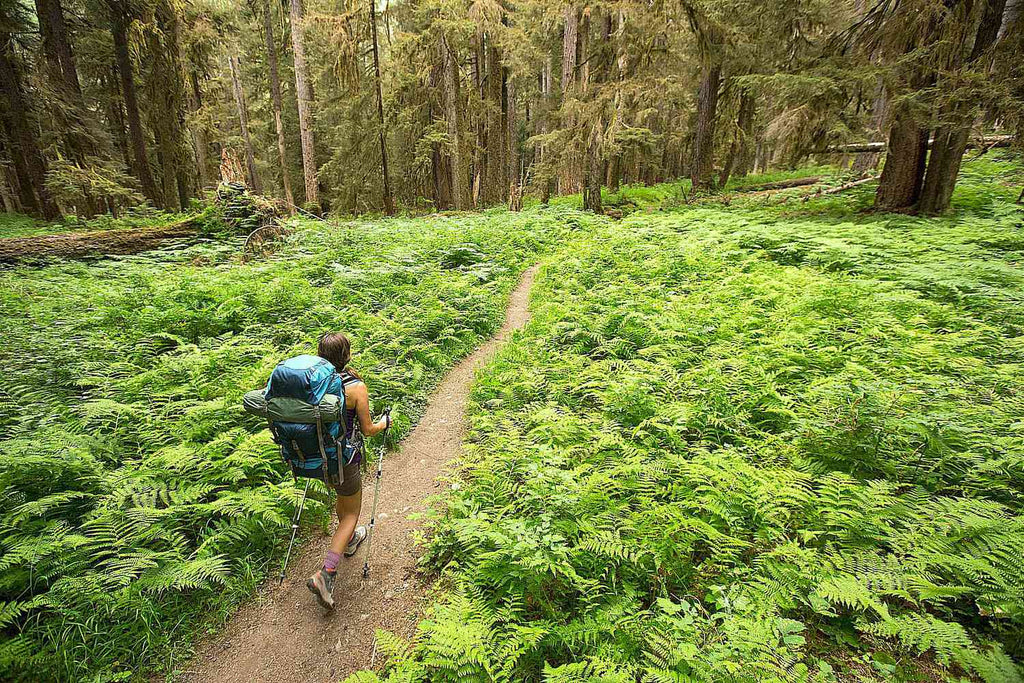
Source: ThoughtCo
Global ecotourism is growing steadily and is expected to become a whopping a $374 billion industry in 2028. What it entails is creating sustainable travel activities that are about the conservation and preservation of natural biodiversity. If you are thinking of building an ecotourism business, you will need to create and carry out nature-based activities aimed at improving the general understanding and appreciation of ecotourism within people. Wildlife safaris and bird watching are a few examples of ecotourism activities you can offer.
Some of its features include:
- Focused on protecting natural habitats.
- You can benefit from local communities.
- It is focused on raising awareness and promoting understanding of the environment.
Pros:
- Ecotourism helps minimize overall environmental impact.
- Helps generate income for local communities, contributing to conservation efforts.
Cons:
- Over-tourism can lead to environmental degradation.
- It can be more expensive due to the limited visitor capacity.
- A few ecotourism destinations can pose accessibility challenges.
Quick read: Top 15 Shopify Website Examples For Your Inspiration In 2024
Investment Estimate:
Starting an ecotourism business can cost somewhere between $10,000 to $50,000, depending on the location and the experiences you are offering.
Organic & Vegan Catering
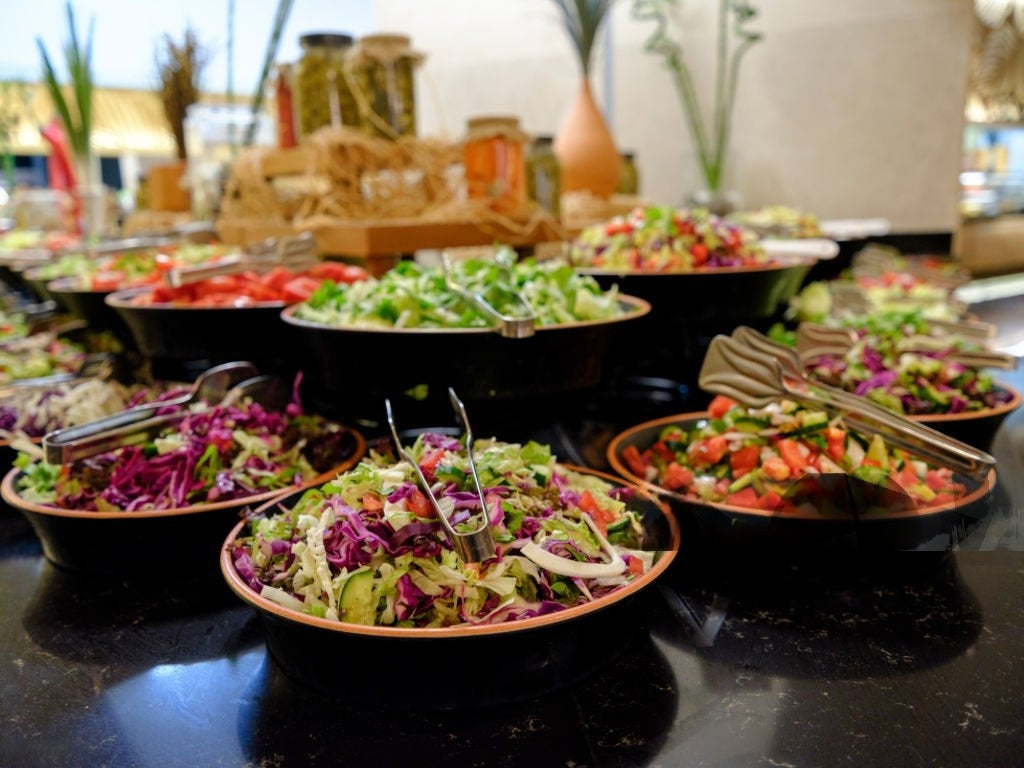
Source: iStock
According to Precedence Research, the global organic food market size is expected to hit USD 546.97 billion by 2032. This indicates massive growth and demand in the coming years for business owners who are looking to venture into this and even vegan catering services.
The business usually involves providing food services that use organic ingredients or adhere to a vegan diet with no dairy or animal products.
Key features of this business include:
- Use of organic produce and ingredients, free from synthetic pesticides and fertilizers.
- Use eco-friendly practices.
- No meat, eggs, or dairy products are used in the processing or making of these products.
Pros:
- This green business is associated with health benefits.
- Supports sustainable agriculture
- Caters to diverse dietary needs.
Cons:
- Ingredients may be perceived as more expensive.
- Some traditional dishes may be excluded from the menu due to vegan constraints.
- The target audience may be smaller.
Investment Estimate:
You can start an organic food and vegan catering service with a starting investment of $1000, which can go up to $5,000.
Eco-friendly Pet Care Products & Services
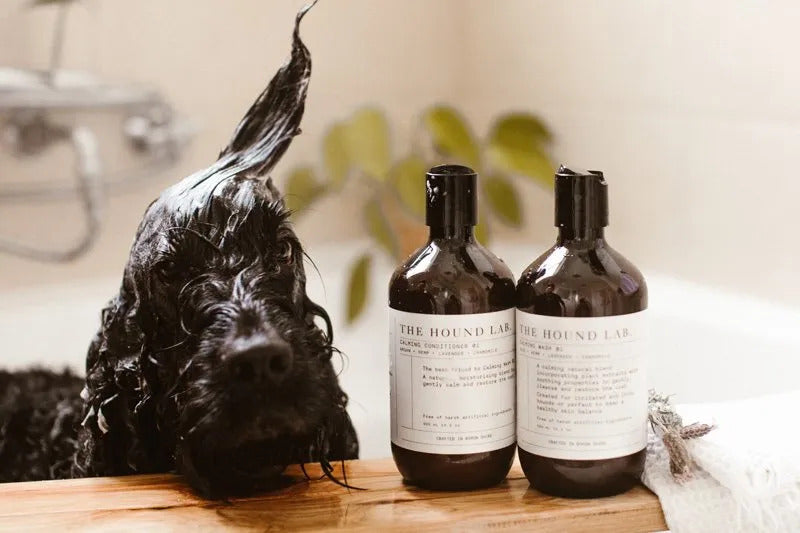
Source: The Hound Lab
People who like eco-friendly stuff also want the same for their pets. Eco-friendly pet products, like toys, clothes, and treats, use wholesome ingredients and eco-conscious materials. Services, such as pet grooming, also go green by using eco-friendly bath products and reducing waste. It's all about keeping it clean and good for the planet. If you are looking for some inspiration, you can check out Biome. They have an eco-friendly pet product wing in their online store with a wide range of products.

Source: Biome
Features:
- Utilizes eco-friendly and biodegradable materials.
- Ensures ethical sourcing of ingredients.
- Emphasizes minimal and recyclable packaging.
Pros:
- This type of business addresses the ecological impact of pet care by using sustainable materials.
- Eco-friendly products often prioritize pet health.
Cons:
- They are more expensive than conventional pet care products.
- Not all pet care products may have eco-friendly alternatives readily available.
Investment Estimate:
Starting capital can range from $10,000 to $50,000.
Reusable Food Wrap & Storage Solutions
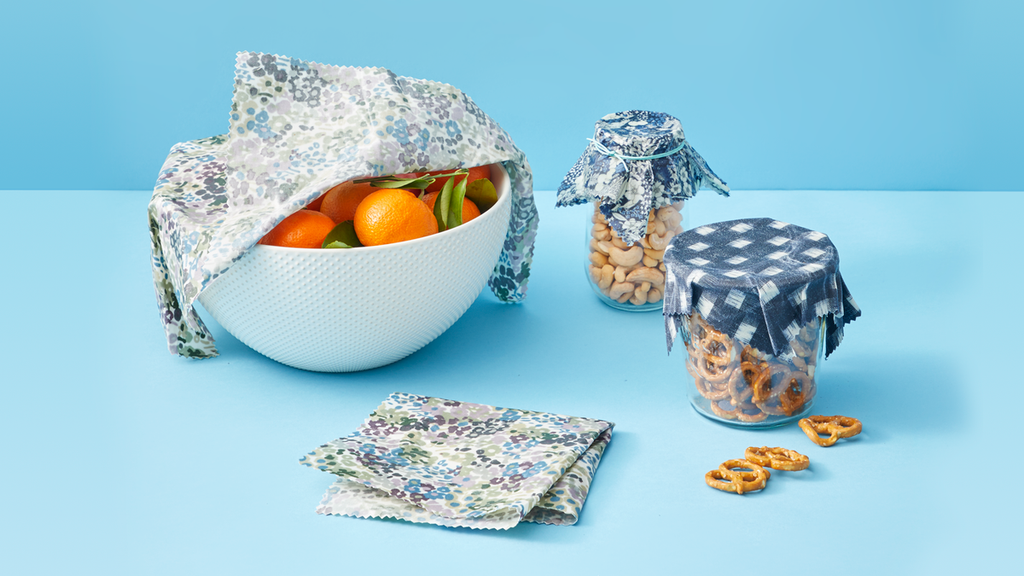
Source: Good Housekeeping
This business idea is not uncommon anymore and is in high demand. Reusable food wrap and storage solutions are simply products made of biodegradable materials, which can be reused by washing or cleaning them. The best examples would be beeswax, silicone food wraps, and glass containers that can be reused to store food and keep it free from contamination.
Key Features:
- Made from eco-friendly materials like beeswax, silicone, and glass.
- They are always in demand.
- They are a better alternative to single-use plastic wraps and containers.
Pros:
- Promotes the use of eco-friendly and renewable materials.
- Over time, reusable options can be more economical.
Cons:
- It may have a limited lifespan.
- While cost-effective in the long run, initial purchases may be more expensive.
Investment Estimate:
The cost of starting a reusable food wrap and storage solution can range from $1,000 to $20,000, covering product development, marketing, and distribution.
Avenue, a Shopify store, has a dedicated section for eco products where you can find eco-friendly product bags that are recycled and reusable.
Eco-friendly Cleaning Products
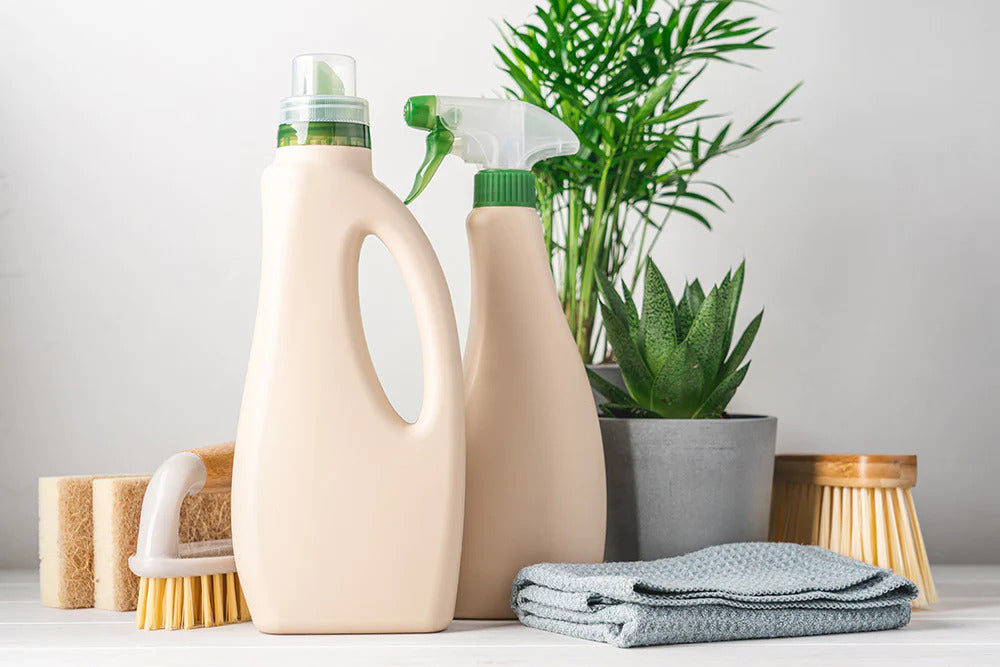
Source: Aspen Clean
Paper towels are a common sight in every kitchen now. But they can't be reused and have to be thrown out after every use. But these days, in the supermarkets, you can see kitchen towels that are reusable, as in you can wash and reuse them after cleaning. These types of cleaning products are made of long-term, reusable, and durable materials and are better alternatives for a safe environment. For example, Pine O Cleen's disinfectant wipes are made of biodegradable materials, making their use safer for the environment.

Source: Amazon
Starting an eco-friendly cleaning products business has the following features:
- Utilizes non-toxic, biodegradable components for cleaning.
- Minimal and recyclable packaging.
- Minimized use of energy consumption and water usage.
Pros:
- Non-toxic products are safer for the environment.
- Lessens the harm to ecosystems.
- Attracts customers who prioritize sustainability.
Cons:
- People conceive eco-friendly cleaning products as more expensive.
- Not all cleaning services may offer eco-friendly alternatives.
Investment Estimate:
Starting this business might need a starting investment of $5,000 to $20,000.
Sustainable Personal Care & Beauty Products
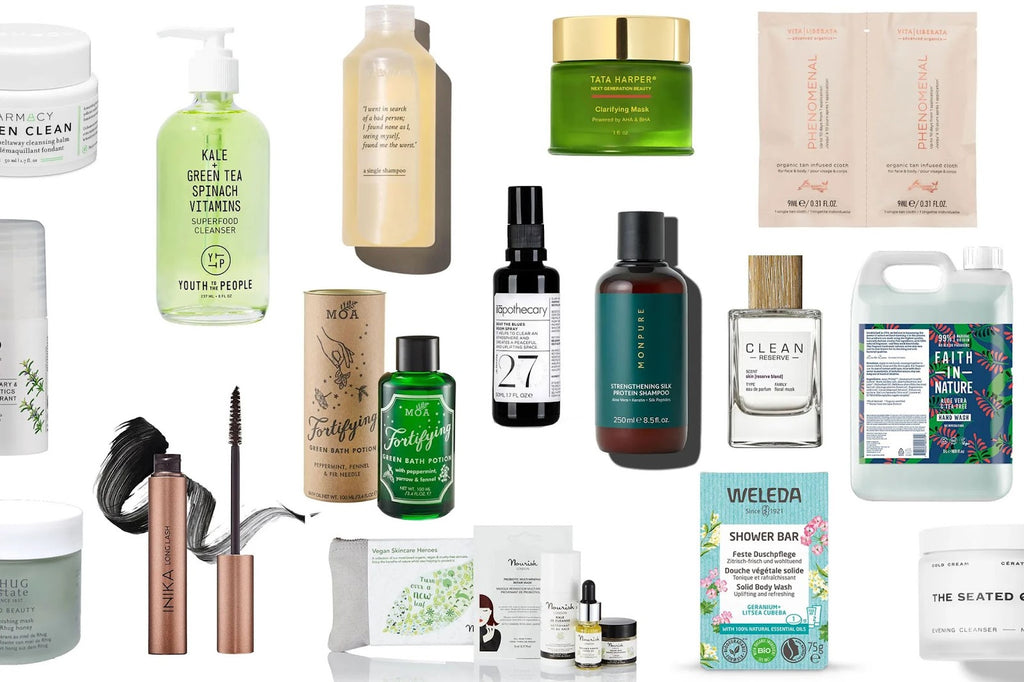
Source: CN Traveller
Like Meow Meow Tweet, the demand for sustainable personal and beauty care is always on the rise. This goes for cosmetics, skincare, and grooming items, as these products emphasize the use of eco-friendly and cruelty-free ingredients, as well as sustainable packaging to reduce environmental impact. Another Shopify beauty and skincare brand that is totally sustainable is 100% Pure. Their products are made of pure, natural ingredients derived from plants.
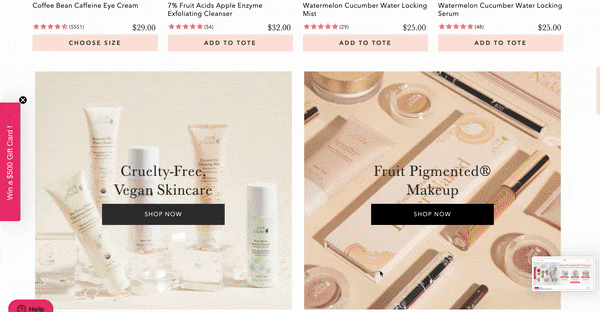
Source: 100% Pure
Notable features include:
- Utilizes plant-based, organic, and cruelty-free components.
- Minimal packaging waste.
Pros:
- The products appeal to customers who prefer products not tested on animals.
- These products often exclude harmful chemicals, promoting healthier skincare routines.
Cons:
- Not all brands offer a wide range of sustainable skin and beauty care options.
- Better education on the need for sustainable personal care is needed.
Investment Estimate:
You can start a sustainable personal care business with $10,000 to $50,000.
If you are ready to embark on your green business journey and are looking for the perfect eCommerce partner, then look no further than Shopify. PageFly invites you to sign up for a free trial and get three months of Shopify for $1/month on select plans.
Don't forget to create a thriving online presence. You can use PageFly Landing Page Builder from the Shopify App Store, creating a standout platform for your eco-friendly venture.
Wrapping Up
In a world where sustainability is not just a choice but a necessity, these nine green business ideas stand out as not only lucrative ventures but also as impactful contributors to the planet's well-being. Don't forget to consider each green business idea's pros and cons and investment requirements before jumping in. And most of all, focus on creating a business that is meant for the long run. So, get ready to contribute to a greener tomorrow. All the best!
Explore more, check out: The Best Marketing Ideas On Earth Day




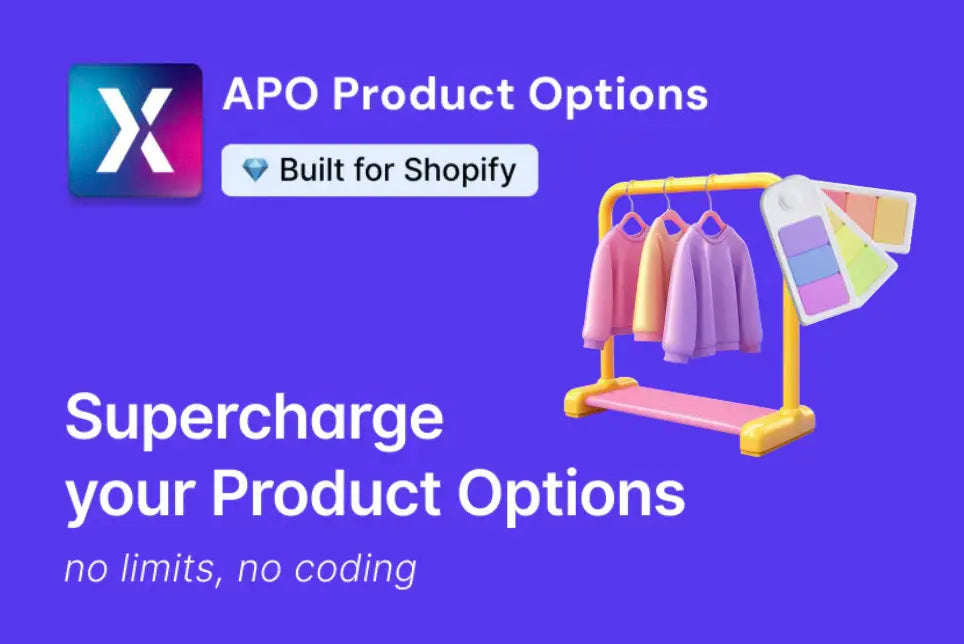
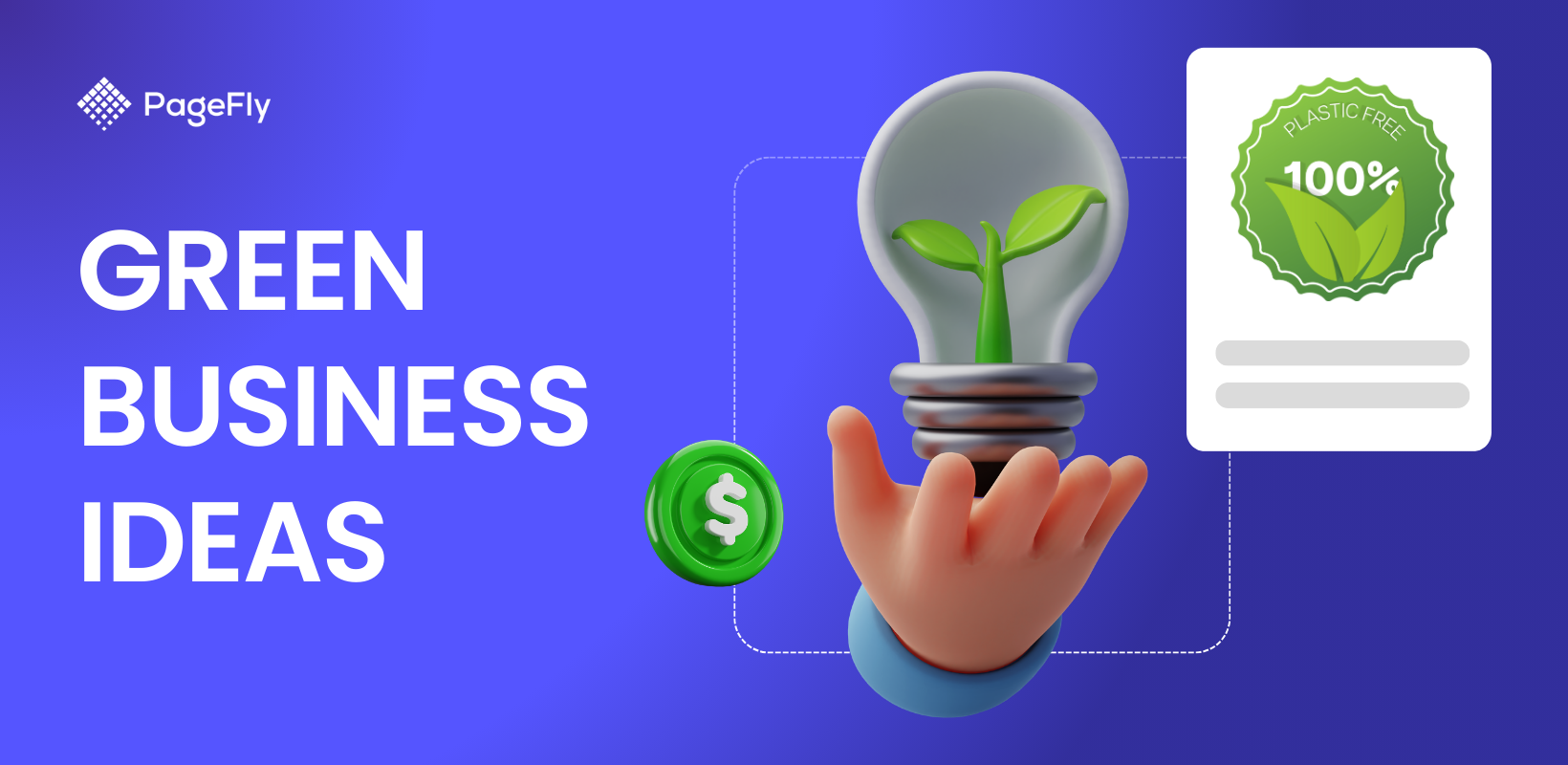

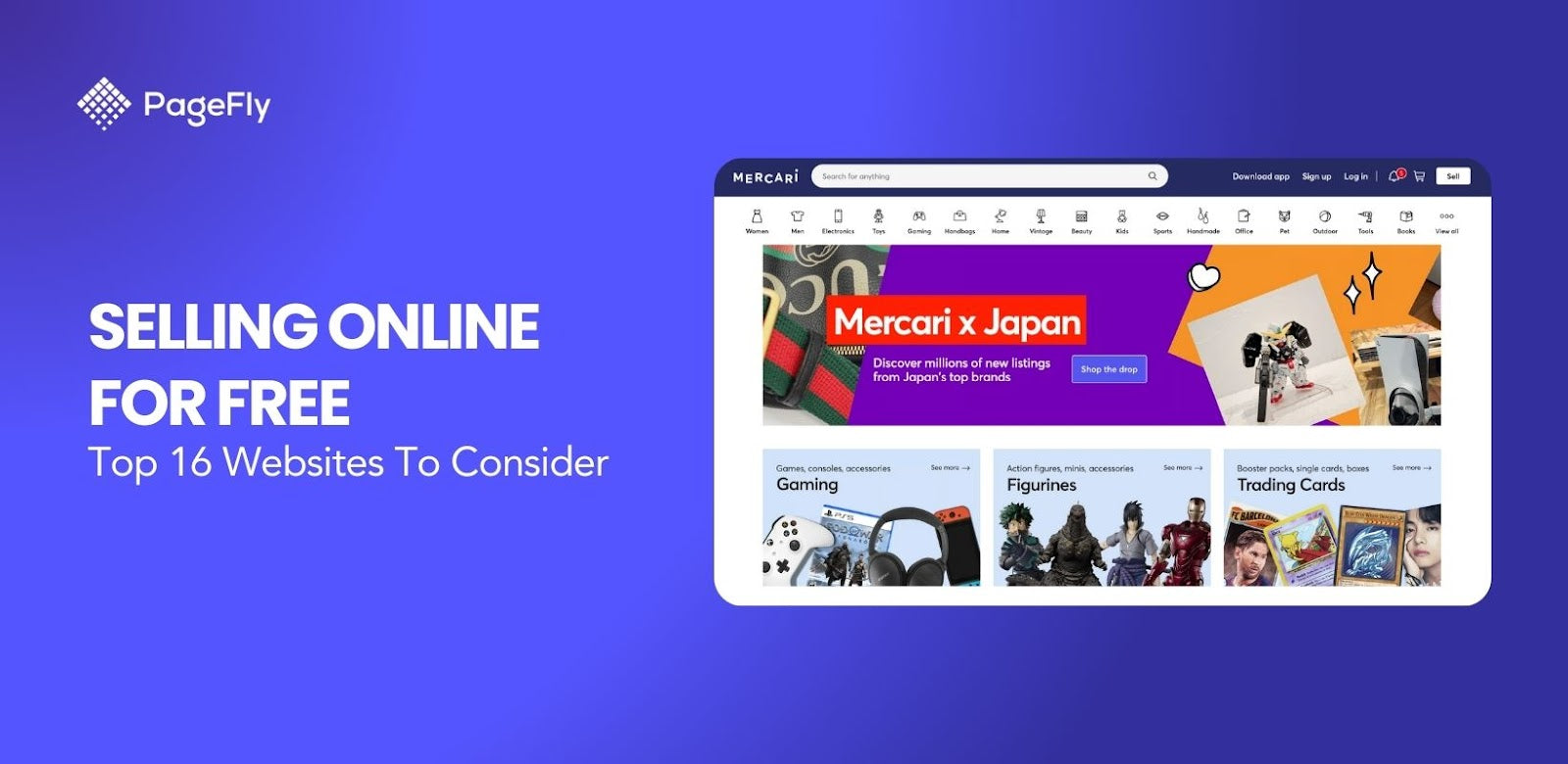
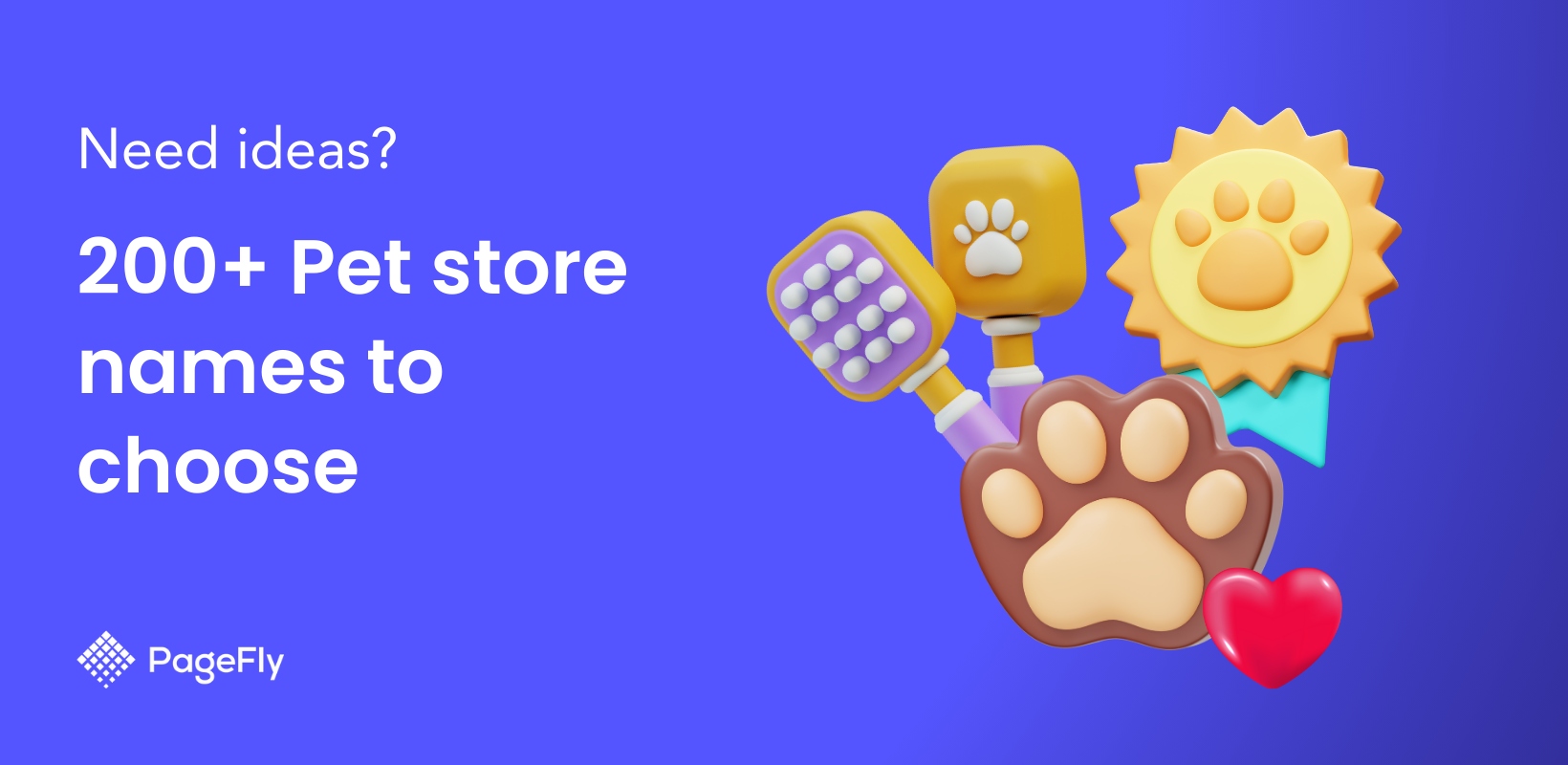
![14 Profitable Small Food Business Ideas for 2025 [Real Numbers]](http://pagefly.io/cdn/shop/articles/1_58b587d2-13db-4aa6-8c19-e40f5c88d3eb.jpg?v=1758255771&width=4460)
![Art Business Names: 350+ Ideas + Free Generator [2025 Updated]](http://pagefly.io/cdn/shop/articles/art_business_name_e94a54e9-d325-4ba3-94ab-7b4297952312.png?v=1760062968&width=1640)
